 If you ask me what my favorite day of the year is, it’s gotta be Marathon Monday. This year, after lots of training and fundraising and obsessively checking the weather forecast, I got to anticipate in Marathon Monday in the best way possible–by running the Boston Marathon with the Dana-Farber Marathon Challenge team.
If you ask me what my favorite day of the year is, it’s gotta be Marathon Monday. This year, after lots of training and fundraising and obsessively checking the weather forecast, I got to anticipate in Marathon Monday in the best way possible–by running the Boston Marathon with the Dana-Farber Marathon Challenge team.
I’m still kind of baffled that it all actually happened, and more about how my experience as a runner relates to my life as a runner to come, but for now here’s a look at what the whole weekend was like for a newbie marathoner like me.
Marathon Weekend
I’m used to seeing runners come into town for the marathon, but this was the first time I got to go to the B.A.A. Expo and pick up a number of my very own. (Sightings of Meb Keflezighi and Kathrine Switzer were pretty cool, too.) On my way over to check in with the DFMC team, I stopped by the Barnes & Noble (because how do you pass a bookstore without going inside) and saw the shiny new paperback of Breakfast Served Anytime by Sarah Combs, one of my favorite YA authors and a fellow runner. I took this as a good sign for Monday.
On Saturday, I took it easy, painted my nails, tried not to check the weather forecast every 10 minutes.
 On Sunday, the DFMC staff organized a pasta dinner for the team and loved ones. Our team raises money for cancer research, and even before I joined the team I knew that was a worth cause. Over the training season, I’d heard so many stories from teammates and volunteers who had lost loved ones–parents, grandparents, friends, siblings, children–far too early. At the pasta party, we heard stories from cancer survivors, from people who had lost loved ones. We heard about how the money we’re raising goes directly to research that will save lives and improve quality of life for patients. It was a great reminder that, no matter how the race went, we had already helped make a difference for someone’s loved ones.
On Sunday, the DFMC staff organized a pasta dinner for the team and loved ones. Our team raises money for cancer research, and even before I joined the team I knew that was a worth cause. Over the training season, I’d heard so many stories from teammates and volunteers who had lost loved ones–parents, grandparents, friends, siblings, children–far too early. At the pasta party, we heard stories from cancer survivors, from people who had lost loved ones. We heard about how the money we’re raising goes directly to research that will save lives and improve quality of life for patients. It was a great reminder that, no matter how the race went, we had already helped make a difference for someone’s loved ones.
Marathon Monday
 5:30am: wake up time. I slept better than I expected to the night before, including a dream about being part of a caper with Dwayne “The Rock” Johnson, which I took as another good sign.
5:30am: wake up time. I slept better than I expected to the night before, including a dream about being part of a caper with Dwayne “The Rock” Johnson, which I took as another good sign.
Walt, supportive guy that he is, woke up with me and drove me out to Hopkinton so I could catch the runner shuttle to the Athletes’ Village. DFMC rents out a church for team members, so I got to wait there until start time, drinking water and stretching and getting advice from veteran marathoners. The two biggest pieces of advice–go slower than you think you need to when you start, and enjoy the day.
10:45am: time to line up. Most of the DFMC team was in Wave 4, Corral 3, so we shuffled out to the start line, along with a ton of other charity runners. It was already hot out, and I was kind of worried about how I’d do in this weather. (I’m basically a vampire, so sun/heat does not work for me.) But even with that and worrying about all 26.2 miles ahead, I was so excited to be there and ready to run.
 11:15am: start gun blasts, and we were off!
11:15am: start gun blasts, and we were off!
11:52am: first 5k. I tried to keep the advice of my teammates in mind and keep to my pace, but it was so hard when everyone was passing me and it felt like I was going way slower than I was. Ended up doing about an 11:30 pace, about 30 seconds faster than I planned.
Fortunately, at the 3 mile water station, I got to see my friend and crit partner and Marathon Monday volunteer, Katie Slivensky. Getting a hug and cheering from a good friend made a huge difference at the beginning of the race.
1:20pm: 15k down (about 10 miles) and into Natick, I was looking for my mom  and a good family friend, who told me they’d be in front of a big church. I passed one and thought I missed them, but found them a couple of blocks later in front of another big church. I got more hugs, plus some water and gatorade and fuel and sunscreen.
and a good family friend, who told me they’d be in front of a big church. I passed one and thought I missed them, but found them a couple of blocks later in front of another big church. I got more hugs, plus some water and gatorade and fuel and sunscreen.
2:00pm: half of the marathon down, and still a long way to go. Things started to cool down, and a headwind picked up, so heat was less of an issue, but I made sure to keep taking Gatorade and water at stops. Going by the Wellesley ‘scream tunnel’ was a big boost to get me into Wellesley Square and onto familiar turf.
3:52pm: 35k (almost 22 miles) done. Around mile 19, Walt and friends Emily and Billy, plus their adorable baby, were cheering for me and waving the best sign ever. They were standing where we’d all been a couple years ago, and it was so cool to be on the runner side of things this year. I got more fuel, hugs, and baby high-fives, and took off for the hardest part of the course–Heartbreak Hill.
Our team did long runs over Heartbreak a few times, so the sight wasn’t new, but running it after 20 miles was. But I’d been refueled and had been pacing myself well and, even though I saw a lot of people walking it, I wanted to run the whole way. I wasn’t much faster than the walkers, but I powered up and over and felt like a total badass.
 4:30pm: 25 miles in, and I’d passed through my old neighborhood of Brookline (even catching sight of friend and fellow writer Jill of Looks and Books!). The Citco sign was in sight and, even better, DFMC had a cheering section at mile 25. I ran over to get a hug from Sandy, one of our team’s most inspiring and committed volunteers, and felt so pumped to finish strong.
4:30pm: 25 miles in, and I’d passed through my old neighborhood of Brookline (even catching sight of friend and fellow writer Jill of Looks and Books!). The Citco sign was in sight and, even better, DFMC had a cheering section at mile 25. I ran over to get a hug from Sandy, one of our team’s most inspiring and committed volunteers, and felt so pumped to finish strong.
My legs were sore. My arms were chaffing. My feet were tired. But once I saw that sign that told me I only had one more mile, I got a burst of energy. I was doing this–I was going to finish.
I turned left on Hereford, right on Boylston, like I’d always imagined. And guys–nothing beats that turn onto Boylston.
 Even though I was running at the end of the day, there were still so many people cheering. It was a beautiful day and I was in a city I loved on my favorite day of the year. My feet were light and my heart was full and I was going to cross that finish line.
Even though I was running at the end of the day, there were still so many people cheering. It was a beautiful day and I was in a city I loved on my favorite day of the year. My feet were light and my heart was full and I was going to cross that finish line.
4:44pm: I crossed that finish line.
I finished in 5 hours, 27 minutes, and 47 seconds. Since I was planning for a finish time between 5 and 6 hours, this was exactly what I was shooting for.
I always thought I’d cry after crossing the Boston Marathon finish line–and I only didn’t because I knew that if I started, I’d have trouble breathing and this was not a moment to lose my breath. Instead, I opted for awe and happiness.
I got my official Boston Marathon medal. (All medals should have unicorns on them.) I got a hug from Jan, DFMC organizer extraordinaire and the woman who keeps us all safe and running and inspired. DFMC volunteers guided me to the team recovery area, where I got changed, got food, and got a massage.
 Walt picked me up, and we went home, where I showered and turned my phone on to see all the supportive texts and tweets and emails and comments from family and friends.
Walt picked me up, and we went home, where I showered and turned my phone on to see all the supportive texts and tweets and emails and comments from family and friends.
Running seems like something you do alone, but so much of it is about your community–your fellow runners, your supporters, strangers who cheer you on from the side of the road. So here are a few Marathon Monday thank yous of my own:
- To my DFMC teammates, for sharing advice and running alongside me and inspiring me with their stories.
- To the DFMC staff, for all their hard work behind the scenes to make this whole training season and marathon weekend a huge success.
- To the DFMC volunteers, who took such good care of us all season, and who know all too well what it means to fight cancer.
- To our coach, Jack Fultz, for his professional guidance and keeping us all on track
- To my amazing PT, Danielle Adler, who got me from running in pain to running strong.
- To fellow runners and athletes who asked about my training and really wanted to talk about it.
- To Lin-Manuel Miranda and the cast of Hamilton, whose voices powered me through my first marathon.
- To the Trader Joe’s peanut-butter filled pretzel bites.
- To Duncan and the OOFOS team for keeping our feet cozy off the road.
- To Newton Fire Station 2 and the Newton Library, for having strategically placed bathrooms for long runs.
- To the Newton and Wellesley police departments, who kept runners safe during our longest training run. (Sorry, people who were driving that day!)
- To the Wellesley scream tunnel and the students outside of Boston College for keeping me pumped.
- To the spectators waving hilarious signs and blasting fun music.
- To the girl in Brookline who cheered, “I am so proud of you!”
- To the fellow runners who caught my hat when it blew off a few times.
- To the marathon volunteers who woke up early and worked so hard to kept us safe and hydrated.
- To the marathon volunteer who saw my empty water bottle and offered to fill it for me.
- To the spectators handing out cups of ice and spraying runners with water.
- To the safety officials and race organizers who make sure we all have a fun day.
- To the people who saw my singlet and cheered, “Go Dana-Farber!” with such support that I could tell their lives had been touched by cancer, and they knew what it meant to run for Dana-Farber.
- To everyone who donated to my fundraising campaign, and who shared stories about battles they’ve fought or stores of loved ones who battled cancer.
- To everyone who sent encouragement and enthusiasm on Marathon Monday and during my training.
- To Emily and Billy for the best sign a marathon runner could have and giving me some serious sparkle power.
- To Aunt Barbara, who was also a writer and reader and runner, and whose earrings carried me forward on the course.
- To my friends and family, especially my parents, who never doubted that I could run the Boston Marathon, even though the Cardis are totally not sporty people.

- To Walt for making sure I got where I needed to go, I had what I needed, and for supporting me in so many ways for months on this incredible journey.
I’m sore and tired but so happy. Stay tuned tomorrow for more thoughts on running and writing, but for now, this runner is taking recovery seriously and basking in the glow of 26.2 miles of awesomeness.
 Getting to spend time with my critique group, including two members who no longer live in the New England area and make the trip out for the weekend.
Getting to spend time with my critique group, including two members who no longer live in the New England area and make the trip out for the weekend.
 ‘improv’ writing workshop.
‘improv’ writing workshop.


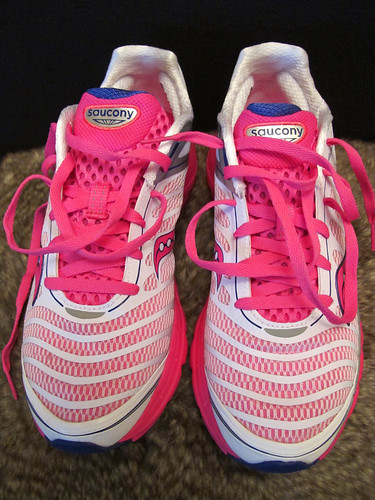

 If you ask me what my favorite day of the year is, it’s gotta be
If you ask me what my favorite day of the year is, it’s gotta be  On Sunday, the DFMC staff organized a pasta dinner for the team and loved ones. Our team raises money for cancer research, and even before I joined the team I knew that was a worth cause. Over the training season, I’d heard so many stories from teammates and volunteers who had lost loved ones–parents, grandparents, friends, siblings, children–far too early. At the pasta party, we heard stories from cancer survivors, from people who had lost loved ones. We heard about how the money we’re raising goes directly to research that will save lives and improve quality of life for patients. It was a great reminder that, no matter how the race went, we had already helped make a difference for someone’s loved ones.
On Sunday, the DFMC staff organized a pasta dinner for the team and loved ones. Our team raises money for cancer research, and even before I joined the team I knew that was a worth cause. Over the training season, I’d heard so many stories from teammates and volunteers who had lost loved ones–parents, grandparents, friends, siblings, children–far too early. At the pasta party, we heard stories from cancer survivors, from people who had lost loved ones. We heard about how the money we’re raising goes directly to research that will save lives and improve quality of life for patients. It was a great reminder that, no matter how the race went, we had already helped make a difference for someone’s loved ones. 5:30am: wake up time. I slept better than I expected to the night before, including a dream about being part of a caper with
5:30am: wake up time. I slept better than I expected to the night before, including a dream about being part of a caper with  11:15am: start gun blasts, and we were off!
11:15am: start gun blasts, and we were off! and a good family friend, who told me they’d be in front of a big church. I passed one and thought I missed them, but found them a couple of blocks later in front of another big church. I got more hugs, plus some water and gatorade and fuel and sunscreen.
and a good family friend, who told me they’d be in front of a big church. I passed one and thought I missed them, but found them a couple of blocks later in front of another big church. I got more hugs, plus some water and gatorade and fuel and sunscreen. 4:30pm: 25 miles in, and I’d passed through my old neighborhood of Brookline (even catching sight of friend and fellow writer Jill of
4:30pm: 25 miles in, and I’d passed through my old neighborhood of Brookline (even catching sight of friend and fellow writer Jill of  Even though I was running at the end of the day, there were still so many people cheering. It was a beautiful day and I was in a city I loved on my favorite day of the year. My feet were light and my heart was full and I was going to cross that finish line.
Even though I was running at the end of the day, there were still so many people cheering. It was a beautiful day and I was in a city I loved on my favorite day of the year. My feet were light and my heart was full and I was going to cross that finish line. Walt picked me up, and we went home, where I showered and turned my phone on to see all the supportive texts and tweets and emails and comments from family and friends.
Walt picked me up, and we went home, where I showered and turned my phone on to see all the supportive texts and tweets and emails and comments from family and friends.
 “You ask whether I should continue to write if no one but myself would ever see my work. There is no reason to believe that anyone will ever see any more of my work…We are likely to give many incorrect explanations for what we do instinctively. It is very easy for me to say that I write poetry in order to formulate my ideas and to relate myself to the world. That is why I think I write it, though it may not be the right reason. That being so, I think that I should continue to write poetry whether or not anybody ever saw it, and certainly I write lots of it that nobody ever sees. We are all busy thinking things that nobody ever knows about.”-–Wallace Stevens in a letter to editor
“You ask whether I should continue to write if no one but myself would ever see my work. There is no reason to believe that anyone will ever see any more of my work…We are likely to give many incorrect explanations for what we do instinctively. It is very easy for me to say that I write poetry in order to formulate my ideas and to relate myself to the world. That is why I think I write it, though it may not be the right reason. That being so, I think that I should continue to write poetry whether or not anybody ever saw it, and certainly I write lots of it that nobody ever sees. We are all busy thinking things that nobody ever knows about.”-–Wallace Stevens in a letter to editor 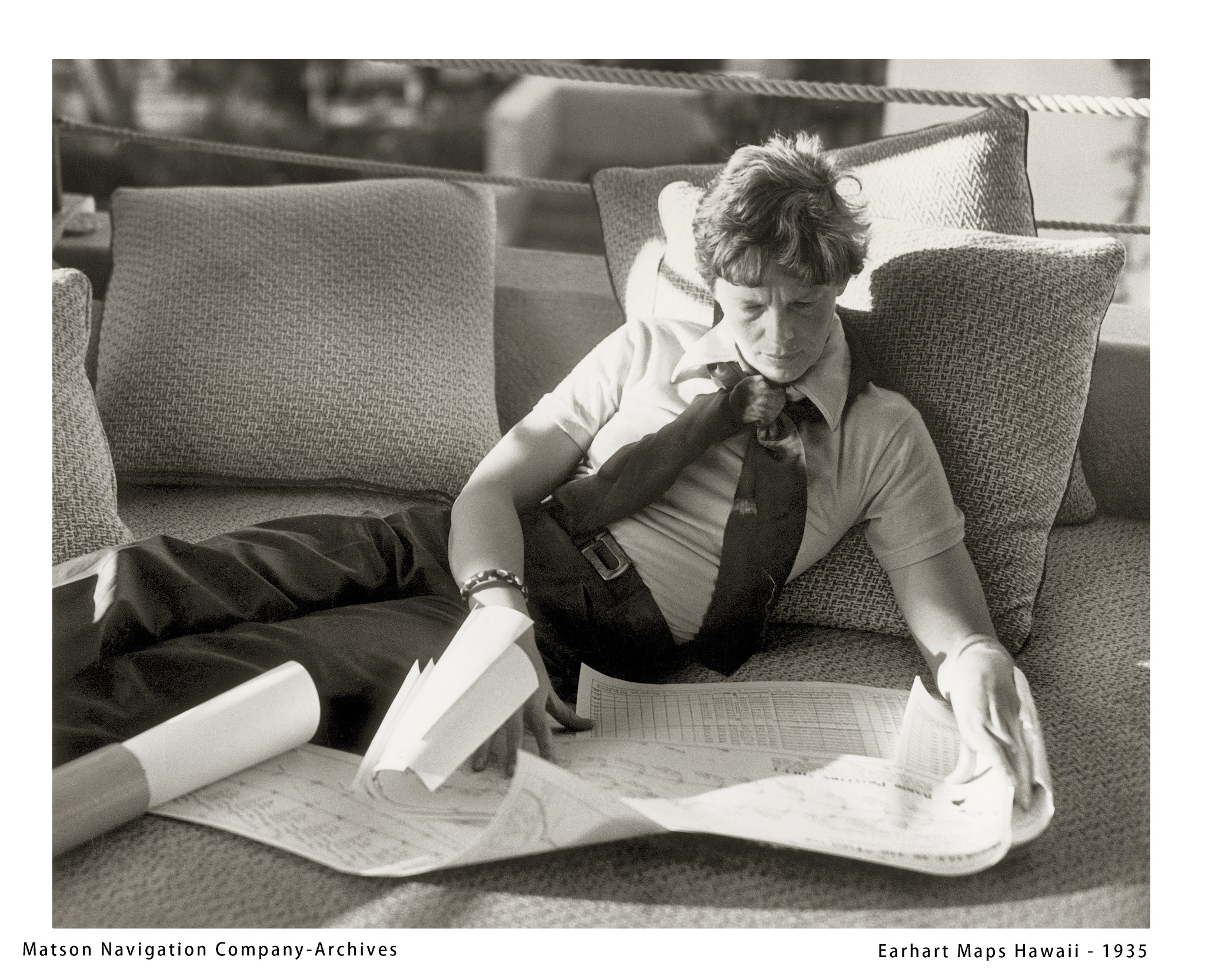
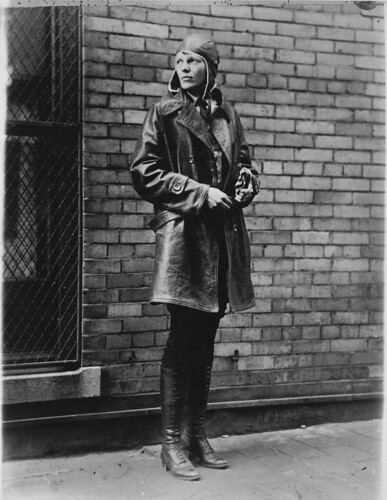
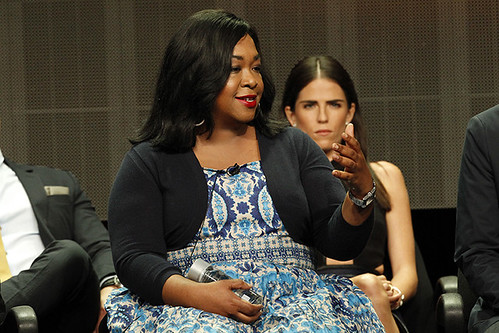
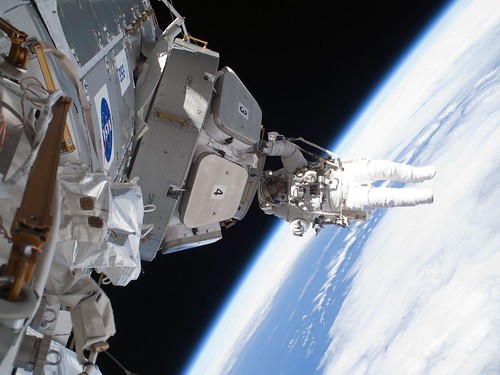

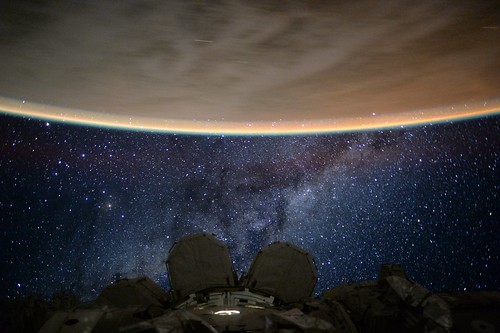

 The other day, a coworker asked about my weekend, and I mentioned going for a long run and my training. She said, “No way! I didn’t know you were a runner.”
The other day, a coworker asked about my weekend, and I mentioned going for a long run and my training. She said, “No way! I didn’t know you were a runner.”